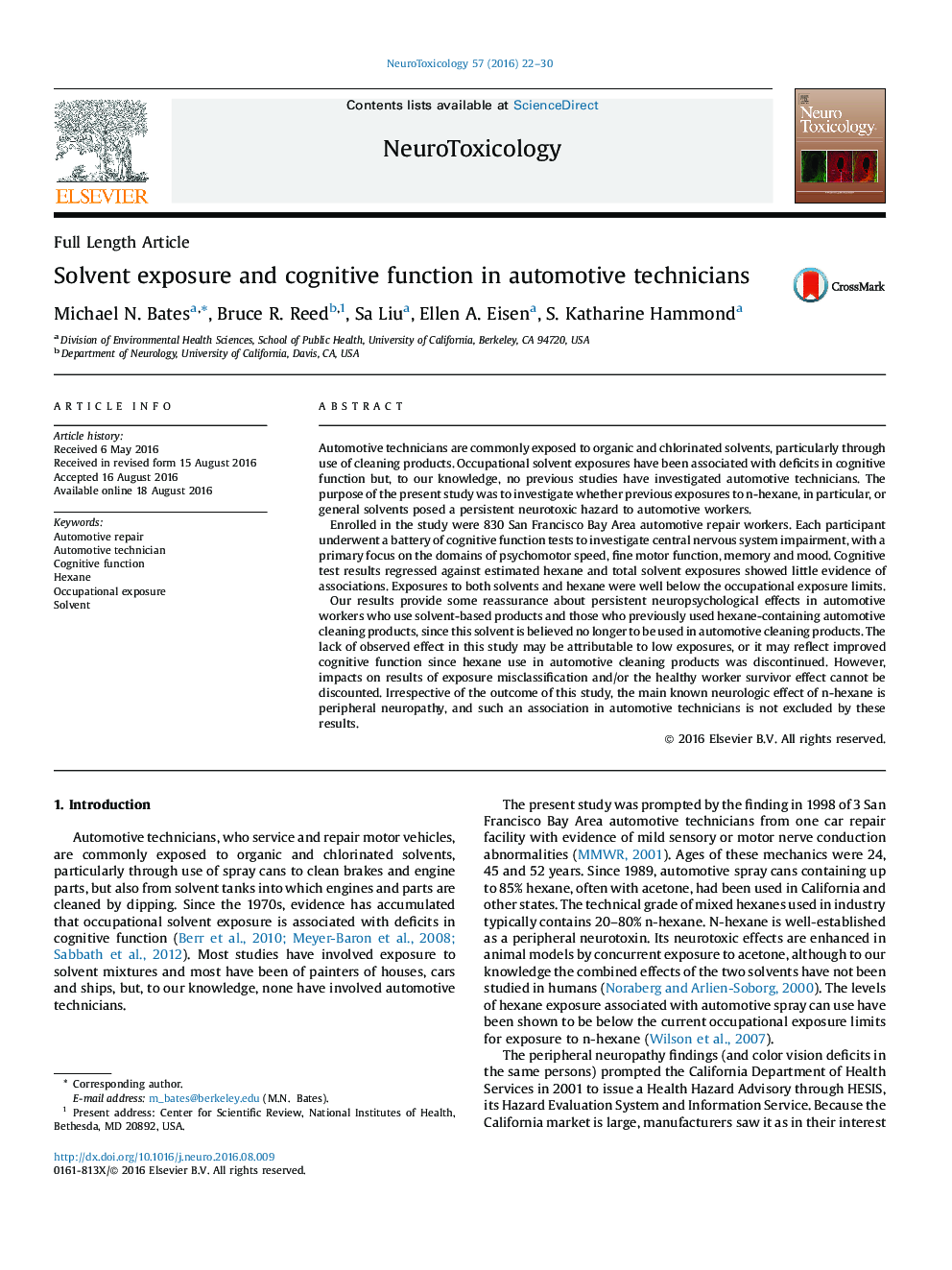| کد مقاله | کد نشریه | سال انتشار | مقاله انگلیسی | نسخه تمام متن |
|---|---|---|---|---|
| 2589399 | 1562037 | 2016 | 9 صفحه PDF | دانلود رایگان |
• The largest study of cognitive function and solvent exposure in automotive technicians.
• No association between hexane or solvent exposure and cognitive function.
• May reflect improved cognitive function since hexane discontinued or low exposures.
Automotive technicians are commonly exposed to organic and chlorinated solvents, particularly through use of cleaning products. Occupational solvent exposures have been associated with deficits in cognitive function but, to our knowledge, no previous studies have investigated automotive technicians. The purpose of the present study was to investigate whether previous exposures to n-hexane, in particular, or general solvents posed a persistent neurotoxic hazard to automotive workers.Enrolled in the study were 830 San Francisco Bay Area automotive repair workers. Each participant underwent a battery of cognitive function tests to investigate central nervous system impairment, with a primary focus on the domains of psychomotor speed, fine motor function, memory and mood. Cognitive test results regressed against estimated hexane and total solvent exposures showed little evidence of associations. Exposures to both solvents and hexane were well below the occupational exposure limits.Our results provide some reassurance about persistent neuropsychological effects in automotive workers who use solvent-based products and those who previously used hexane-containing automotive cleaning products, since this solvent is believed no longer to be used in automotive cleaning products. The lack of observed effect in this study may be attributable to low exposures, or it may reflect improved cognitive function since hexane use in automotive cleaning products was discontinued. However, impacts on results of exposure misclassification and/or the healthy worker survivor effect cannot be discounted. Irrespective of the outcome of this study, the main known neurologic effect of n-hexane is peripheral neuropathy, and such an association in automotive technicians is not excluded by these results.
Journal: NeuroToxicology - Volume 57, December 2016, Pages 22–30
